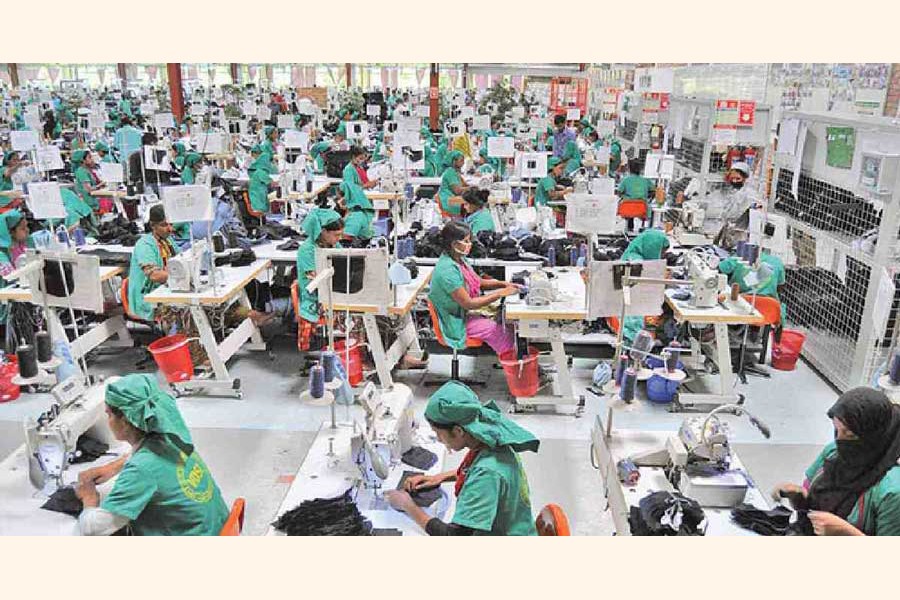
Syed Rabius Shams and Md. Mofazzol Karim | Published: July 10, 2020 23:40:18
The ready-made garment (RMG) industry in Bangladesh is the home of the second-largest apparel seller in the world. RMG is the primary export-oriented industrial sector of Bangladesh and it looks forward to becoming the prime industry in the years to come, as the export statistics suggest. This year amid the Corona outbreak, amongst the total export from the country, more than 80 per cent came from RMG exports. The RMG industry in Bangladesh experienced the most overwhelming incident in its history on April 24, 2013. The collapse of the Rana Plaza, an eight-story factory building in Savar, Dhaka, that housed five garment factories, killed at least 1,132 people, and injured more than 2,500. This unfortunate event cast a spotlight on the poor working conditions in RMG supply firms where millions of workers make garments for consumers worldwide. The foremost apparel industry of the country has been experiencing the second most overwhelming incident in its history after Rana Plaza Tragedy.
Thus it implies that the sustainable future of RMG sector of Bangladesh will depend on ensuring continuous improvements in labour rights, workplace health, safety and reasonable business. In the RMG sector, transparency means permitting consumers to know who makes their apparel from who farmed the cotton, stitched them, and dyed the fabric and other relevant information on products. The demand for transparency in the RMG supply chain is rising as consumers are becoming more socially and environmentally aware every day during the Covid pandemic.
To contribute to improving efficiency, transparency and accountability of RMG in Bangladesh, Mapped in Bangladesh (MiB) has been undertaking a 4-year research initiative by Centre for Entrepreneurship Development (CED) of BRAC University [CED-BRACU] and BRAC. The implementing organisation is aiming to map the RMG industry across all garment-producing districts in the country. MiB’s design and implementation are in response to a lack of essential industry data, such as: how many export-oriented factories exist in the country, gender ratio of workers employed there, what kind of products are produced and which brands work with them, etc., among other relevant information.

